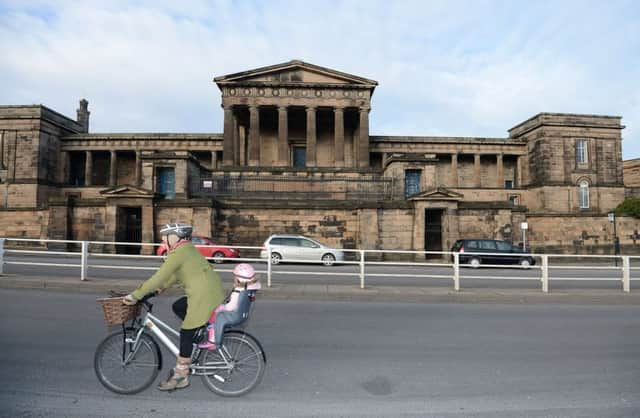You can help shape the world you live in


Rarely has the public and political agenda in Scotland been so dominated by such a passionate interest in the places around us, how they are developed, how they are changed and how they are used – from wanting to see more allotments to protests over Glasgow’s George Square proposals, from dismay at Aberdeen’s development at Marischal Square to the outcry over a hotel chain’s plans for the landmark former Royal High School in Edinburgh.
A national conversation has sprung to life on how much say people have regarding where they live, what that place looks like, how it works and how it evolves and – at the heart of it – how to be engaged with the planning system to deliver these visions.
Advertisement
Hide AdAdvertisement
Hide AdAn engaged and participative population is a sign of a healthy democracy.
However, when it comes to the planning system, people too often assume that their only rights are those of reply after decisions have been made. Nothing could be further from the truth. When people do get involved at the earliest opportunity in this important public service – when the vision is still being shaped – their views and opinions are crucial to the final outcome.
The planning system is unique in giving people the opportunity to create the places they want; no other public service allows for so much participation and influencing.
People and places make Scotland, and we should be inspiring individuals to be aware of how these places are created and the role they have in that.
However, we must not shy away from challenges, for example how to address the effects of climate change: should we have more renewables schemes on our land or better flood defences? How will we address mobility issues of an ageing population? Do we need to build smaller housing units near services?
There are other challenges, such as an increasingly culturally diverse society with different demands and values, and, finally, how do we create a more equal society where everyone’s voice matters?
With rights comes responsibility, and a fairer society is one that is able to empower and listen to a range of opinions, balancing often competing demands through a well-functioning planning system.
We are witnessing a period of political open-mindedness at Holyrood as the Community Empowerment (Scotland) Bill makes its way through parliament and we must seize such a time to debate what places we need now and in the future. We must ensure that all ages and all members of communities are heard – from young people seeking skate parks to adults looking for increased public park spaces for leisure time and wellbeing.
Advertisement
Hide AdAdvertisement
Hide AdAt PAS, we want to see a culture shift in which early and meaningful engagement in the planning system becomes the expectation and the norm. PAS enables people in Scotland to engage with the places they live in by providing advice, training and awareness-raising, so that everyone can have a voice.
We are leading the way in Scotland’s place-making agenda and we are achieving remarkable and tangible results both in political and public spheres. Importantly, we also speak up for seldom-heard groups such as young people, those who live longest with decisions made today, or ethnic minority groups such as Gypsy/Travellers.
Such groups may not be shouting the loudest, but their needs of a safe and secure place are just as great.
PAS is running innovative education programmes with young people through schools and youth clubs, encouraging them to develop not just an understanding of the processes but their right to shape the places they live in, to be able to play, to meet and to feel safe and secure. We are building an essential knowledge base for future generations thanks to our experts, associates and 400-plus volunteers
The planning system has for too long been blamed when things go wrong, but a sea-change can happen if we empower everyone to take part in a meaningful and creative way. The planning system came into being to deal with the impacts of a society that underwent rapid industrialisation and urbanisation. Its roots lay in serving the public good.
In these challenging times, we need to remind ourselves we are the public and it is in our interest to participate and to encourage others as well, so that we will create the places we all feel part of.
• Petra Biberbach is chief executive of PAS (formerly Planning Aid for Scotland),
SEE ALSO